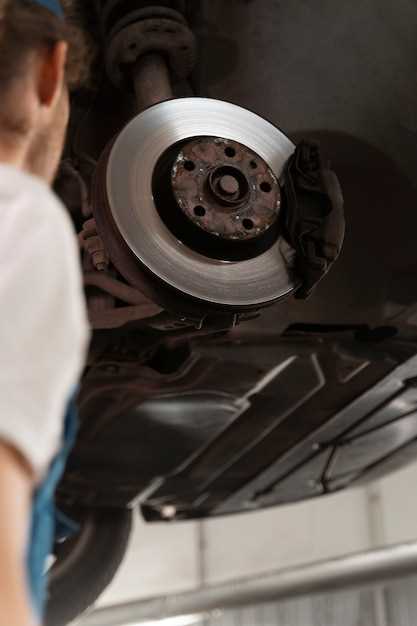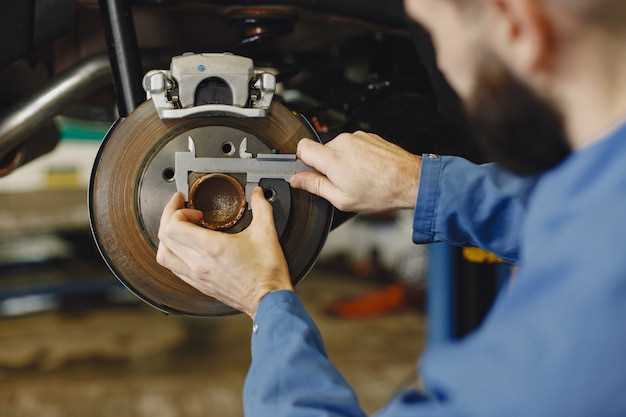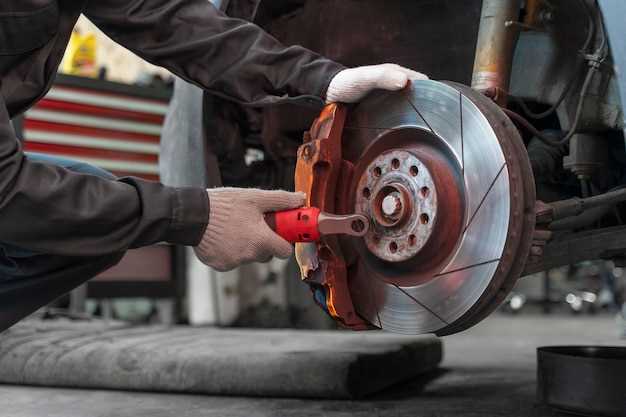

For truck drivers and fleet operators, ensuring the safety of their vehicles is a top priority. One of the most critical aspects of vehicle safety is the brake system. Regular brake maintenance is essential not only for the longevity of the truck but also for the protection of everyone on the road. When brakes fail, the consequences can be catastrophic, leading to accidents that could have been easily prevented with proper care.
Trucks bear heavy loads and often travel long distances, which places significant stress on their braking systems. Regular maintenance checks are crucial to identify wear and tear before they escalate into major issues. Ignoring brake problems not only jeopardizes the truck’s operational efficiency but also places the driver, cargo, and other road users at risk. A well-maintained brake system is a cornerstone of reliable and safe truck operation.
Moreover, routine brake inspections can lead to long-term cost savings. By addressing minor issues early on, drivers can avoid costly repairs and downtime associated with major brake failures. In an industry where time is money, ensuring optimal function and safety of truck brakes is a wise investment. Overall, prioritizing regular brake maintenance is vital for any truck operator aiming to ensure safety, reliability, and longevity on the road.
Understanding the Importance of Brake Components Inspection
Regular inspection of brake components is crucial for ensuring the safety of trucks on the road. The braking system is one of the most vital aspects of a vehicle, directly impacting its ability to stop effectively and maintain control during operation. A thorough examination of brake parts, such as pads, rotors, calipers, and brake lines, plays a significant role in preventing potential accidents and enhancing overall vehicle performance.
Neglecting brake component inspection can lead to severe consequences, including brake failure or reduced stopping power. Over time, brake pads wear down, and rotors may become warped, which can result in longer stopping distances and increased risk of collisions. Routine checks allow for early detection of wear and damage, enabling timely repairs that can save costs and improve safety.
Moreover, experienced technicians can identify other underlying issues that may not be immediately apparent but could affect brake system functionality. This proactive approach reduces the likelihood of unexpected repairs and downtime, which is especially critical for truck operators relying on their vehicles for timely deliveries.
In summary, prioritizing brake components inspection not only safeguards the driver and others on the road but also enhances the longevity and reliability of the truck. Regular maintenance ensures that every part of the braking system is functioning optimally, contributing to safer transportation and fewer emergency repairs in the long run.
Identifying Signs of Brake Wear and When to Seek Repairs

Regular brake maintenance is crucial for ensuring the safety of your truck and its occupants. One of the most important aspects of this maintenance is identifying signs of brake wear early. Being proactive can prevent major repairs and enhance overall safety on the road.
One of the first signs of brake wear is a persistent squeaking or squealing noise when the brakes are engaged. This sound often indicates that the brake pads are worn down and need replacement. Ignoring these sounds can lead to further damage to the braking system, increasing repair costs.
Another clear indicator is a decrease in braking performance. If your truck takes longer to stop or requires more pressure on the brake pedal, this may suggest that the brake pads or rotors are worn. Reduced responsiveness poses a significant safety risk, particularly when transporting heavy loads.
Vibrations or a pulsating sensation when applying the brakes can signal warped rotors. This issue not only affects braking efficiency but can also lead to uneven wear on other components, necessitating more extensive repairs. It’s essential to address this problem promptly to maintain safety.
Pay attention to warning lights on your dashboard. Many modern trucks are equipped with sensors that alert you when brake maintenance is needed. Ignoring these warnings can jeopardize your truck’s safety and lead to costly repairs.
Lastly, if you notice any fluid leaks near the wheels, it’s critical to seek immediate repairs. Brake fluid leaks compromise the hydraulic system, severely affecting brake operation. Addressing any leaks quickly is essential for maintaining safety.
In summary, being vigilant about the signs of brake wear is vital for safe truck operation. Regular inspections and timely repairs can prevent serious issues, ensuring that your vehicle remains reliable on the road. If you experience any of the mentioned symptoms, do not hesitate to consult a professional for a thorough assessment and necessary repairs.
Implementing a Scheduled Maintenance Plan for Truck Safety

Implementing a scheduled maintenance plan is essential for ensuring the safety and longevity of trucks. A well-structured plan not only aids in the timely identification of potential issues but also facilitates proactive repairs, ultimately safeguarding both the vehicle and its operators.
A crucial aspect of this maintenance plan involves regularly inspecting key components such as brakes, tires, and engine systems. Scheduling these inspections at defined intervals allows for the early detection of wear and tear, which can prevent significant breakdowns and costly repairs. Additionally, routine checks ensure that all safety features are operational, reducing the risk of accidents on the road.
Utilizing a checklist during maintenance visits helps in systematically evaluating the condition of essential truck parts. This method fosters a comprehensive understanding of the vehicle’s status and assists in keeping detailed records, which can be invaluable for tracking repairs and scheduling future maintenance. Regular documentation also aids in compliance with safety regulations and standards.
Moreover, involving professional technicians in the maintenance plan enhances the effectiveness of repairs. Skilled professionals bring expertise and knowledge that can identify problems that may not be visible to untrained individuals. Their insights can lead to more informed decisions regarding the necessity and urgency of repairs, thereby enhancing safety.
In conclusion, a scheduled maintenance plan is vital for truck safety, ensuring that vehicles remain in optimal condition. By prioritizing regular inspections, leveraging checklists, and consulting professionals for repairs, truck operators can significantly reduce risks, ensure compliance, and provide a safer driving experience on the roads.